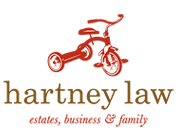Tax laws are confusing on a good day–what you can deduct, what you can claim–And with all the recent changes to the laws, it’s almost impossible to know if you’re doing the right thing.
Hopefully, this will help. Here’s the straight scoop on how the new tax law affects your estate plan:
A Quick and Dirty List of What Changed
On December 16, 2010, Congress passed a new tax law that changes how your estate should be planned:
- The estate tax has been restored retroactively to Jan. 1, 2010.
- You can pass $5 million through your own estate without having to worry in 2010. That amount will be indexed for inflation after 2011. Anything over the $5 million mark is taxed at a maximum of 35 percent.
- If you die in 2011, your surviving spouse can add any of your unused exemption to theirs – a new concept of estate tax portability. In calculating the total exemption (up to $10 million) the amount that’s portable is not indexed for inflation, but your surviving spouse’s own exemption amount is.
- The gift tax still applies but the amount you can give away in your lifetime has been raised from $1 million to $5 million starting in 2011. This amount will be indexed for inflation as well, and you and your spouse can combine your lifetime limits for a total of $10 million. If you plan to give away more than $5 million, the tax rate on the excess will remain at 35%.
- Generation-skipping transfer tax has been reinstated starting in 2011. This tax is applied on top of the estate or gift tax to any assets you pass on to your grandchildren or to a trust you establish for their benefit. The $5 million exemption applies to this tax as well. Interesting note: There is no tax excess this year but that will change next year and the excess will be taxed at 35%. Also note that portability does not apply to the generation-skipping transfer tax.
- When considering income tax on inherited assets, remember that the cost basis for the assets is adjusted to the fair-market value on the date the owner dies. This will help limit the capital-gains tax that your heirs have to pay if they sell the asset.
- If assets are inherited in 2010, the executor of the estate has an interesting choice to make: Choose to have the estate subject to the new tax law or follow the system in effect in 2010 (i.e., no estate tax). If you choose the old law in effect for 2010, the estate must use the original price paid for any asset to calculate the income tax the heirs will owe. You receive an exemption of up to $1.3 million on the gains and a $3 million exemption on assets inherited from your spouse.
- The estate tax exemption is only TEMPORARY! The $5 million exemption is will reverse at the end of 2012 and bring us right back where we started from at an exemption of $1 million. Two years from now, we’ll face the same nail-biting uncertainty we did this year.
- Don’t wait to finish your estate planning because the estate tax exemption has been increased. Planning isn’t about minimizing taxes, it’s about making sure our loved ones can carry on without us. It’s about keeping our family’s business private, closely managed, asset protected, and out of court! Minimizing taxes is one of the many benefits of planning and just because the federal government has given us a larger exemption doesn’t mean we shouldn’t plan. It does mean that we should be prepared for an ever-changing landscape of estate tax laws.
So, What Do You Do Now?
Call your estate planning attorney (or hire one if you don’t already have one) and talk to him or her about the changes. Be sure to ask about the following issues, too:
If you’ve been waiting to see what Congress would do with the estate tax before you took action on an estate, you’re in luck. Some of the key deadlines that are normally 9 months from the date of death have been extended for people who died in 2010:
· Filing the return
· Paying any estate tax due
· Disclaiming or turning down an inheritance
· Applying the generation-skipping transfer tax
When you start planning your estate, make sure you have your hands on records showing what your assets cost when they were purchased. If you can’t prove what the assets originally cost, the IRS is going to assume that the cost was zero and your heirs could be stuck paying capital gains tax on the total sales amount. For the sake of your heirs, keep all your purchase records in one place, preferably with your estate planning documents.
If you’re selling appreciated assets, talk to your estate planning attorney first. It may be a better course of action to hold the assets over until 2011. The carryover basis question is still not entirely clear at this point and you may bypass those rules if you hold on to the assets until next year.
Many of the changes to the estate tax laws will require a whole new set of paperwork, particularly in dealing with the carryover issue. So far, the IRS has yet to issue new forms or instructions for dealing with carryover basis. The deadline for reporting carryover is April 15th of the year following the person’s death.
If you’ve been chosen to be the executor of someone else’s estate, document every conversation and always follow up verbal communication in writing. If the family disagrees with what you recommend, you’re probably better off doing what they want to do. Just make sure they sign documentation releasing you from liability and indemnifying you from any losses they take as a result.
If you have an estate plan or are thinking about planning your estate and would like an expert opinion on how to deal with the most recent changes to the estate tax laws, call us to schedule your Family Wealth Planning Session today. We can identify what needs to be done to ensure that you have the right plan in place to take full advantage of all the recent changes. Our Family Wealth Planning Session is normally $550, but in January, I’ve made space for the next two people who mention this article to have a complete planning session with me at no charge. Call today and mention this article.

 A later-in-life attorney, Martha Hartney opened the practice in 2010 to serve the people she loves because she is committed to helping moms and dads bring their greatest gifts into parenting fearlessly and with joy and making sure children are completely cared for if something happens to their parents.
A later-in-life attorney, Martha Hartney opened the practice in 2010 to serve the people she loves because she is committed to helping moms and dads bring their greatest gifts into parenting fearlessly and with joy and making sure children are completely cared for if something happens to their parents.
